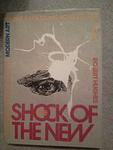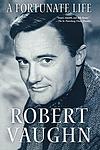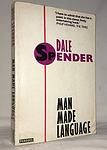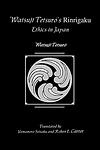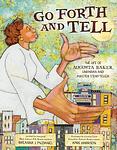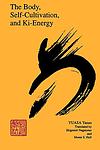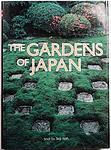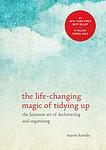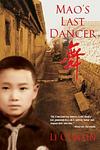The Greatest Australian, Japanese "Nonfiction" Books of All Time
Click to learn how this list is calculated.
This list represents a comprehensive and trusted collection of the greatest books. Developed through a specialized algorithm, it brings together 300 'best of' book lists to form a definitive guide to the world's most acclaimed books. For those interested in how these books are chosen, additional details can be found on the rankings page.
Genres
Countries
Date Range
Reading Statistics
Click the button below to see how many of these books you've read!
Download
If you're interested in downloading this list as a CSV file for use in a spreadsheet application, you can easily do so by clicking the button below. Please note that to ensure a manageable file size and faster download, the CSV will include details for only the first 500 books.
Download-
1. Schindler's List by Thomas Keneally
The book tells the true story of a German businessman who saves more than a thousand Polish Jews during the Holocaust by employing them in his factories. The protagonist's transformation from a greedy high living war profiteer to a savior of lives forms the crux of the narrative. It offers a chilling yet inspiring account of the horrors of the Holocaust, human resilience, and the power of one individual to make a significant difference.
-
2. The Female Eunuch by Germaine Greer
This book is a seminal feminist text that explores the oppression of women in society. It critiques the traditional roles and expectations of women in the mid-20th century, arguing that societal norms and conventions force women into a secondary, submissive role, effectively castrating them. The book encourages women to reject these norms and to embrace their own sexual liberation, arguing for the need for a revolution in the way women perceive themselves and their place in society.
-
3. The Pillow Book by Sei Shōnagon
"The Pillow Book" is a collection of personal observations, anecdotes, and reflections by a woman in the Heian court of Japan. It presents a detailed and vivid picture of court life, including the lavish ceremonies, the rivalries and intrigues, the idle pastimes of the courtiers, and the romantic escapades of the empress and her consorts. The book also contains lists, poetry, and personal musings, providing a unique perspective on the culture and customs of the Heian period.
-
4. Schindler's Ark by Thomas Keneally
The book is a historical novel based on the true story of a German industrialist who becomes an unlikely humanitarian amid the barbaric Nazi reign. When he witnesses the horrors inflicted upon the Jews, he is moved to save as many as he can by employing them in his factory. His actions, driven by courage and compassion, lead to the salvation of over a thousand Jewish workers from certain death in the Holocaust. The narrative explores themes of morality, survival, and the capacity for good in the face of overwhelming evil, as the protagonist navigates the complexities of war and the human spirit.
-
5. The Road from Coorain by Jill Ker Conway
"The Road from Coorain" is a memoir that chronicles the author's journey from her childhood on a remote sheep station in Australia, through her adolescence in war-ravaged Sydney, and finally, to her departure for America. The narrative explores themes of self-discovery, gender roles, and the power of education while providing a vivid portrayal of life in the Australian outback. The memoir also delves into the author's complex relationship with her mother and the impact of her father's death on their family.
-
6. The Shock of the New by Robert Hughes
"The Shock of the New" is an insightful exploration of modern art from the late 19th century to the present day. The book examines the cultural, social, and political forces that shaped and influenced the development of various art movements such as Cubism, Futurism, Surrealism, and Pop Art. It also provides an in-depth analysis of the works of prominent artists who played pivotal roles in these movements. The book serves as a comprehensive guide to understanding the complexities and nuances of modern art.
-
7. A Fortunate Life by A.B. Facey
"A Fortunate Life" is a memoir that chronicles the extraordinary life of a man who overcame immense hardships and adversity to find happiness and contentment. From his humble beginnings in rural Australia to his experiences as a soldier in World War I, the author shares his remarkable journey filled with poverty, loss, and resilience. Despite facing numerous challenges, he remains optimistic and grateful for the opportunities life has presented him, ultimately proving that a fortunate life is not defined by material wealth, but by the strength of the human spirit.
-
8. Tracks by Robyn Davidson
"Tracks" is a memoir that recounts the author's extraordinary journey across the Australian desert on camelback. The narrative provides vivid descriptions of the harsh desert landscape, the challenges faced during this nine-month, 1,700-mile trek, and the transformation of the author's personal character along the way. The book also explores her interactions with the indigenous Aboriginal people and their culture, and includes her reflections on solitude, self-discovery, and the human connection to nature.
-
9. The Confessions Of Lady Nijo by Lady Nijo
This book is a candid autobiographical account of a Japanese woman who lived during the Kamakura period. Initially serving as a concubine to the Emperor, she later becomes a wandering Buddhist nun. Her narrative provides a unique insight into the court life of the time, detailing her intimate experiences, political intrigues, and the societal expectations of women. Her journey from the luxuries of the imperial court to the ascetic life of a nun offers a poignant exploration of love, spirituality, and personal transformation, reflecting the complex interplay between the secular and religious life in medieval Japan.
-
10. Stradbroke Dreamtime by Oodgeroo Noonuccal
"Stradbroke Dreamtime" is a collection of autobiographical stories and traditional Aboriginal tales that weave together the personal experiences of an Indigenous Australian woman with the cultural heritage of her people. The book offers a window into the author's childhood on Stradbroke Island, sharing memories of family life, the natural world, and the impact of colonialism. Alongside these reflections, the work preserves a number of Dreamtime stories, which are central to Aboriginal spirituality and identity, passing on the wisdom and traditions of her ancestors through narratives that celebrate the connection between the land and its inhabitants.
-
11. The Tyranny Of Distance by Geoffrey Blainey
"The Tyranny of Distance" explores the impact of geographical isolation on Australia's history, economy, and society. Blainey delves into how the vastness of the continent has shaped the country's development, from the challenges faced by early settlers to the struggles of maintaining connections with the rest of the world. Through a comprehensive analysis, the book highlights the unique circumstances and opportunities that arise from Australia's geographical position, ultimately offering a thought-provoking perspective on the nation's past and future.
-
12. Man Made Language by Dale Spender
The book in question explores the concept that language is not a neutral medium of communication but rather a man-made construct that reflects and perpetuates the patriarchal structure of society. It argues that the way language is used and structured inherently privileges male perspectives and marginalizes women, influencing perceptions and reinforcing gender inequalities. Through a critical examination of linguistic practices, the text challenges readers to recognize the biases embedded in everyday language and consider the implications these have on women's experiences and the broader social power dynamics.
-
13. Watsuji Tetsuro's Rinrigaku by Watsuji Tetsuro
"Watsuji Tetsuro's Rinrigaku" explores the intricate nature of ethics from a distinctly Japanese perspective, emphasizing the interconnectedness of individual and social morality. The book delves into the concept of 'betweenness' as a fundamental structure of human existence, arguing that ethical relations are inherently tied to the spatial and temporal contexts within which individuals live. This work critically examines Western ethical theories, proposing a communal and geographical approach to understanding human relations, and offers a comprehensive framework for considering moral decisions within the collective fabric of society.
-
14. An Inquiry Into The Good by Nishida Kitarō
"An Inquiry into the Good" explores the philosophical concept of 'good' through an examination of reality and experience. The author integrates Western philosophical approaches with Eastern thought, particularly Zen Buddhism, to delve into topics such as pure experience, intuition, and the unity of consciousness. The work seeks to establish a foundation for understanding reality that transcends traditional dualities such as subject-object and ideal-real, proposing instead a notion of reality that is dynamic and continuously self-creating. This philosophical inquiry aims to articulate a comprehensive worldview that harmonizes ethical, metaphysical, and epistemological perspectives.
-
15. My Place by Sally Morgan
"My Place" is a poignant autobiographical account that traces the personal journey of an Aboriginal woman in Australia as she uncovers her family's past and her own cultural identity. Through a series of interviews and personal reflections, the narrative delves into the experiences of her mother, grandmother, and great-uncle, revealing the hidden stories of displacement, suffering, and resilience that were kept secret due to the shame and stigma associated with their Aboriginal heritage. The book is a powerful exploration of the impact of colonialism and racism on individual lives and serves as a testament to the strength of family bonds and the reclaiming of one's history and sense of self.
-
16. The Master Of Go by Yasunari Kawabata
The book is a thoughtful reflection on the changing face of Japanese culture, told through the lens of a professional Go match between an aging master, representing the old guard and traditional values, and his young, innovative challenger who embodies the new ways. As the intense match unfolds, it becomes more than just a game; it is a poignant exploration of tradition versus progress, the individual versus society, and the tension between the spiritual purity of the art and the commercialism of modern times. The narrative, based on a real-life event, delves deep into the psychology of its characters and the strategic intricacies of Go, offering a subtle yet profound meditation on the nature of competition and the end of an era.
-
17. Hiroshima Notes by Kenzaburō Ōe
"Hiroshima Notes" is a poignant collection of essays that delve into the aftermath of the atomic bombing of Hiroshima, exploring the enduring impact on the survivors and the city itself. The author, through a series of visits to Hiroshima in the 1960s, reflects on the moral and ethical implications of nuclear warfare, the resilience of the human spirit, and the responsibilities of humanity. Through interviews with survivors and thoughtful contemplation, the book provides a deep and multifaceted perspective on suffering, healing, and the quest for peace in the shadow of one of history's most devastating events.
-
18. An Introduction To Zen Buddhism by D.T. Suzuki
This book serves as a concise primer on Zen Buddhism, exploring its philosophical underpinnings and its practice. It delves into the history of Zen and its roots in the teachings of the Buddha and subsequent development in China and Japan. The text elucidates key concepts such as satori (enlightenment), the importance of meditation, and the use of koans (paradoxical anecdotes or riddles) in training the mind to transcend dualistic thinking. Aimed at Western readers, the book also discusses the potential of Zen to influence modern life and thought, providing a thoughtful introduction to those seeking spiritual insight and a deeper understanding of Eastern philosophy.
-
19. The Body by Yasuo Yuasa
"The Body" explores the intricate relationship between the mind and body from the perspective of Eastern philosophies and medicine, particularly focusing on Japanese thought. The book delves into how cultural differences between the East and West influence the understanding and treatment of the body. It discusses the historical and philosophical evolution of body concepts in Japan, integrating theories from Western psychoanalysis and philosophy to challenge the often dualistic approach seen in Western thought. The author proposes a more holistic, integrated view of the body-mind connection, emphasizing the importance of understanding this relationship in the context of human health and well-being.
-
20. 800 Horseman by Col Stringer
The book is a historical account that pays tribute to the legendary Australian Light Horsemen, who played a crucial role during World War I, particularly in the Middle East campaign. It delves into the remarkable feats of these mounted troops, known for their exceptional horsemanship, courage, and endurance. The narrative celebrates their most famous victory at the Battle of Beersheba and explores the unique bond between the horsemen and their faithful mounts, offering insights into the strategies, challenges, and the enduring legacy of these iconic figures in Australian military history.
-
21. The Fatal Shore by Robert Hughes
"The Fatal Shore" provides an expansive and detailed historical account of the colonization of Australia by the British Empire, focusing particularly on the transportation of convicts to the penal colonies established there in the 18th and 19th centuries. The book delves into the harsh realities and brutal conditions faced by the convicts, as well as the broader social, political, and economic ramifications of establishing a colony on the other side of the world. Through compelling narratives and meticulous research, it explores the transformation of Australia from a penal colony to a nation, examining the impact on both the indigenous populations and the settlers.
-
22. The Gardens Of Japan by Teiji Itoh
"The Gardens of Japan" explores the art and aesthetics of Japanese gardens, tracing their development from ancient times to the modern era. The book delves into various garden styles, from the serene rock gardens of Zen Buddhism to the ornate tea gardens and expansive stroll gardens. Richly illustrated and detailed, it examines the philosophical and cultural underpinnings that have shaped garden design in Japan, highlighting the intricate interplay of nature, spirituality, and art. The author provides insights into the symbolic elements of these gardens, their use of space and natural materials, and the meticulous care that goes into their creation and maintenance, offering readers a deep appreciation of this enduring art form.
-
23. The Life Changing Magic Of Tidying Up by Marie Kondo
"The Life Changing Magic of Tidying Up" is a practical guide that offers a fresh perspective on decluttering and organizing one's home. The author introduces the KonMari Method, a systematic approach to tidying that encourages individuals to keep only items that truly spark joy in their lives. Through insightful anecdotes and step-by-step instructions, the book provides valuable insights on how tidying can lead to a transformative and joyful lifestyle.
-
24. Fighting Mc Kenzie Anzac Chaplain by Col Stringer
The book tells the story of Daniel "Fighting Mac" McKenzie, a remarkable military chaplain who served with the ANZAC (Australian and New Zealand Army Corps) forces during World War I. Known for his unorthodox methods and fierce determination, McKenzie was a spiritual guide who also physically defended and rescued soldiers in the trenches, earning him legendary status among the troops. His story is one of bravery, compassion, and unwavering faith, as he navigated the horrors of war to provide comfort and support to the soldiers fighting on the front lines. Through his actions, McKenzie became a symbol of hope and resilience, embodying the spirit of the ANZACs.
-
25. Mao's Last Dancer by Li Cunxin
The book is a memoir of a Chinese peasant boy who, chosen at a young age by Madame Mao's cultural delegates to become a ballet dancer, undergoes a grueling training at Beijing Dance Academy. Through sheer determination and resilience, he excels and earns a rare opportunity to study in America. His experiences abroad open his eyes to the stark contrasts between the communist regime of China and the freedoms of the West. The story follows his emotional and ideological struggle as he eventually defects, leaving behind his family and homeland to pursue his passion for dance and a life of artistic and personal freedom.
Reading Statistics
Click the button below to see how many of these books you've read!
Download
If you're interested in downloading this list as a CSV file for use in a spreadsheet application, you can easily do so by clicking the button below. Please note that to ensure a manageable file size and faster download, the CSV will include details for only the first 500 books.
Download




